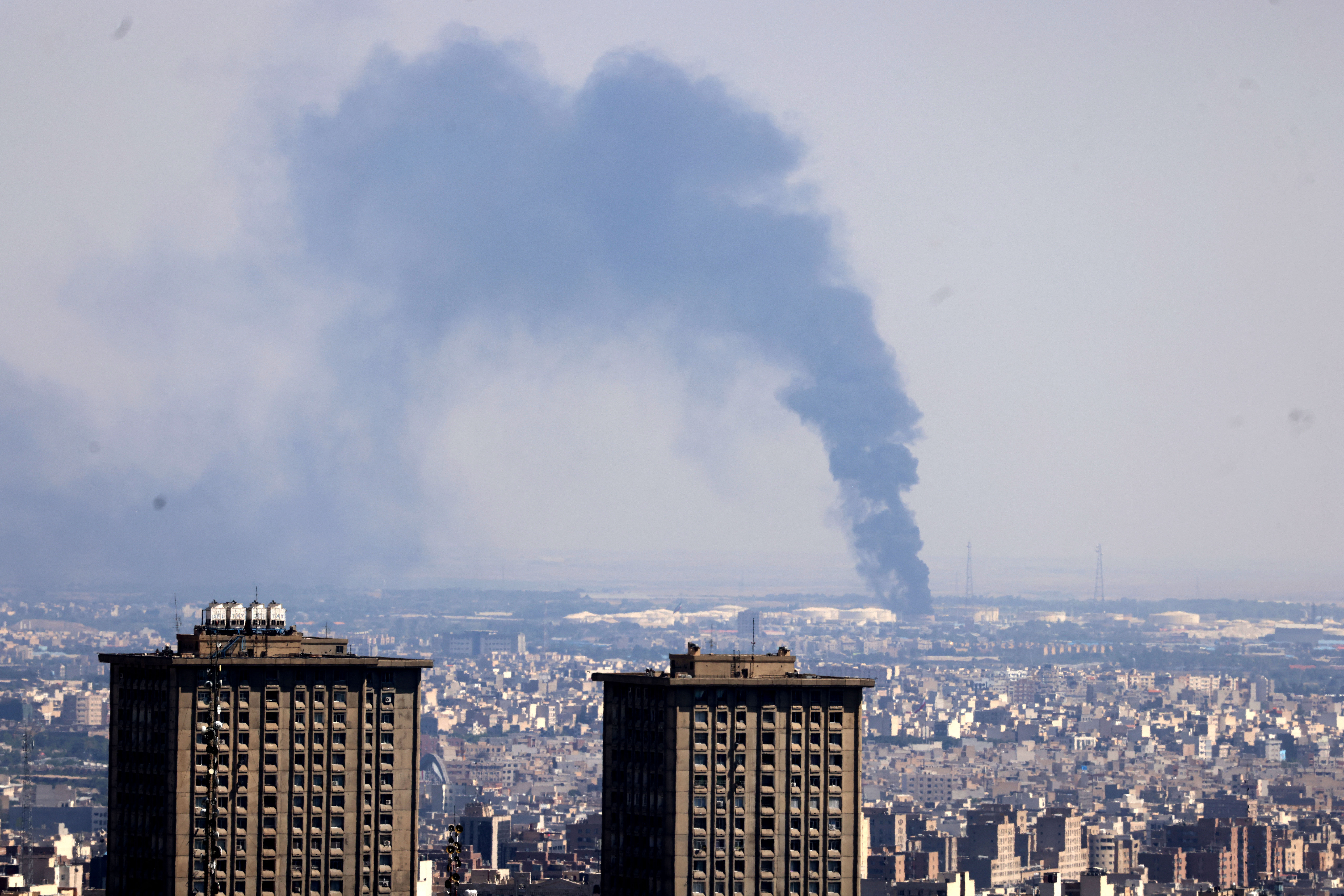OPINION – Why Isn’t the US Joining Israel Against Iran?
If there ever was a justifiable war, it’s the Israeli effort to rid the world of the threats from Iran—threats ranging from regional terrorism to nuclear weapons and pledges to wipe Israel off the map.
So why is the United States hesitant to give full support to its most important Mideast ally? Senators charge that Israel is dragging the US into a regional conflict. The secretary of state, ostensibly a supporter of Israel, issues a lukewarm statement distancing the US administration from the Israeli operation. That’s just a sample.
The answer? Look no further than the two Iraq wars conducted by the pair of US President Bushes. Or if you do want to look further—American history was dominated by isolationism until the Japanese forced a change with their surprise attack on Pearl Harbor in 1941, dragging a reluctant US into World War II.
First, the “regional conflict” fear. American critics ignore the fact that there is already a regional conflict in progress. Iran activated all its proxies—Hamas in Gaza, Hezbollah in Lebanon, and even the Houthis in faraway Yemen—in a concerted attack on Israel.
Then the charge that Israel is torpedoing US-Iran negotiations. It’s hard to take that seriously. There already was an agreement with Iran over its nuclear program, and US President Donald Trump canceled it. It’s unlikely that any new agreement would be as good, let alone better.
And there’s the “ceasefire, restraint on both sides” mantra. It’s an automatic response to conflicts involving Israel. It ignores the fact that Israel’s goals in this war are legitimate, benefiting not only Israel but also Iran’s enemies (and potential Israeli allies) in the Middle East, as well as Europe, and by extension, the US, too.
Iran is the leading sponsor of terrorism in the Middle East and Europe. Iran has also been working on building a nuclear weapon for at least two decades, though it claims its nuclear development program is for peaceful purposes—a curious claim for an oil-rich country.
Twice before in the past year, Iran has fired hundreds of missiles and attack drones at Israel. The Israeli air force, with the assistance of the US, Jordan, and others, shot most of them down.
Give the gift of hope
We practice what we preach:
accurate, fearless journalism. But we can't do it alone.
- On the ground in Gaza, Syria, Israel, Egypt, Pakistan, and more
- Our program trained more than 100 journalists
- Calling out fake news and reporting real facts
- On the ground in Gaza, Syria, Israel, Egypt, Pakistan, and more
- Our program trained more than 100 journalists
- Calling out fake news and reporting real facts
Join us.
Support The Media Line. Save democracy.
Iran’s proxies have killed more than 2,000 Israelis in the past two years, and would have killed many thousands more if it were not for Israel’s investment of millions of dollars in protecting its citizens with bomb shelters and anti-missile systems.
During and after its massacre of 1,200 Israelis on October 7, 2023, Hamas fired thousands of rockets at Israel. Hezbollah joined in the missile barrage from the other end of Israel a day later. Israeli villages in the north and south have been destroyed, and about 100,000 Israelis are still unable to return home.
All this traces back to Iran.
Israeli Prime Minister Benjamin Netanyahu has called for the destruction of Iran’s nuclear weapons program for more than 20 years. One concern was that an Israeli attack against Iran would trigger a response from all sides—thousands of missiles from Gaza, Lebanon, and Iran. The wars in Lebanon and Gaza have mostly removed the threats from there, so Netanyahu saw this as an opportunity to deal with the Iranian nuclear threat.
Waves of Israeli warplanes have hit Iranian nuclear sites and Iranian military leaders. Despite silly, macho warnings of death and destruction from Netanyahu and his defense minister, Israel has not targeted civilian centers.
So again—how is it possible that Americans of all shapes and sizes would not rally to support, even participate in, an operation to rid the world of one of the most dangerous enemies of not only Israel, but also moderate Middle Eastern states, Europe, and the US itself?
Of the many possible explanations, the most likely is recent American history in the Mideast.
In 1991, under President George H.W. Bush, the US led a coalition of forces against Iraq, forcing it to roll back its invasion of Kuwait. While largely successful, critics charged it didn’t go far enough, leaving brutal Iraqi dictator Saddam Hussein in power.
The next President Bush “fixed” that. In response to the 2001 Islamist terror attack that leveled the twin towers in New York, killing more than 2,000 Americans, Bush ordered an invasion of Iraq to topple Saddam and rid the country of weapons of mass destruction. It turned out that Saddam had nothing to do with the infamous 9/11 attack, and weapons of mass destruction were never found. The US made mistake after mistake, embroiled itself in an internal Iraqi conflict, and extricated its forces only after Bush the son left office.
That, then, is the main “bad taste” Americans have from military involvement in Middle East conflicts. Add to that the modern tendency of the US to resist becoming the “world’s policeman,” and you get its reluctance to jump in full force and take advantage of this opportunity to wipe out the Iran threat once and for all.
That is not to say that Israel has handled its conflicts wisely. If it had found a way to end its war in Gaza with an Arab coalition taking over from Hamas and release of the Israeli hostages the terrorists are still holding, then it could have parlayed the coalition into an effective political and military force to face Iran—instead of going it alone.
Israel’s current leaders have a penchant for going it alone, showing the world (and especially their voters) how tough Israel is. That’s not a recipe for a successful future after the wars in Gaza and Iran inevitably end with agreements of some sort.
Perhaps such a coalition can be built now, as the war in Iran progresses. Israel’s allies and potential allies in the region are showing signs of willingness to take part, even quietly.
Now it’s the US’s turn to step up, overcome its history, and take an active role as the main ally of moderate Arab states—and of Israel. There is no gray area here. This is a rare crystal-clear case of right and wrong: Israel isn’t all good, but Iran’s regime is all evil.




